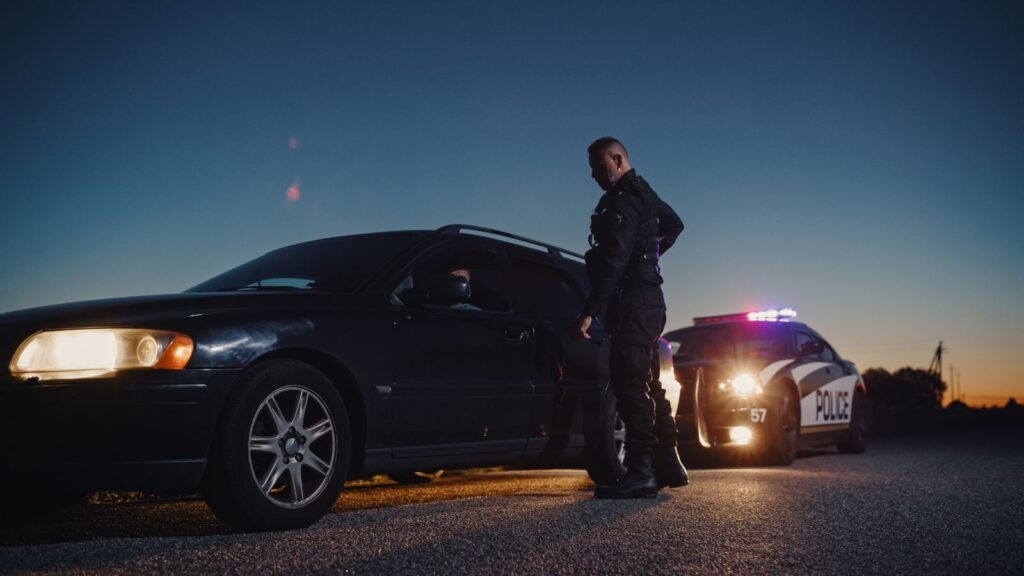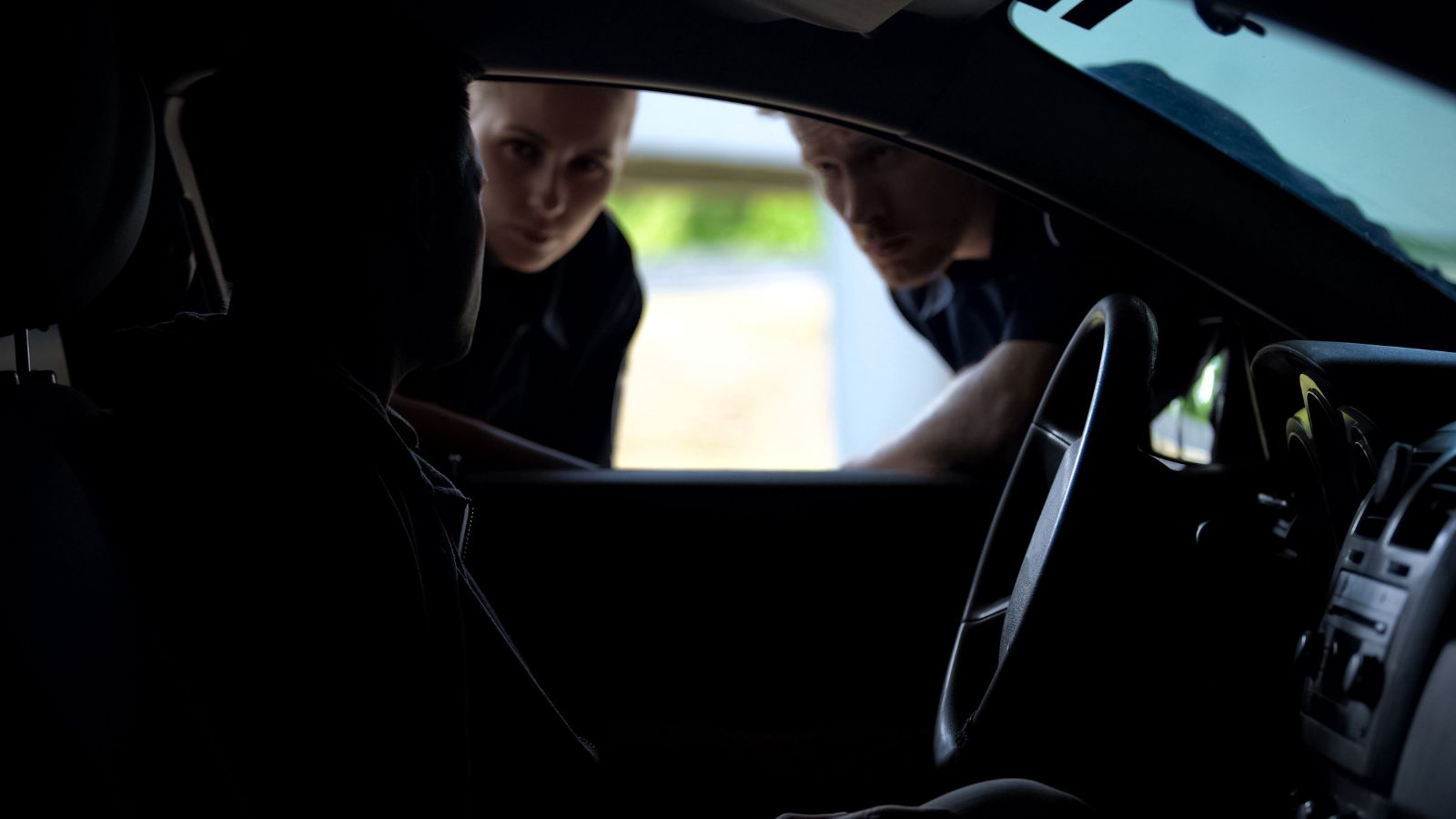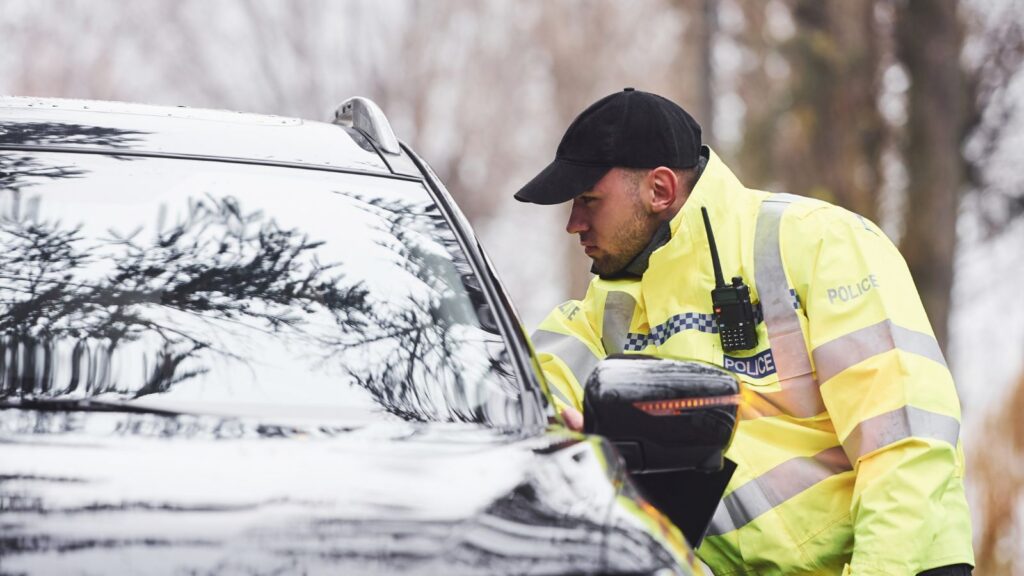The thought of getting stopped by the police is a nerve-wracking prospect for most people. It can be even worse if you’re not sure what you should and shouldn’t say, creating a sense of paranoia, anxiety, and confusion. If you’re worried about the potential for a confrontation with the cops, we’re here to help. This list covers 17 things you don’t have to answer when stopped by police officers.
Personal Details Beyond Basic Identification

The things you’re legally required to tell police officers vary across different states and contexts. However, in most situations, it’s within your right to withhold any personal details beyond basic identification. According to the ACLU, if you’ve been stopped in public, you may be legally required to disclose your name, but you don’t have to tell them what you’re doing or where you’re going. In some states, you may be obligated to tell them your address and date of birth.
Your Current Destination

Although they may ask, you’re not legally required to tell police officers where you’re going. It’s often a good idea to talk to a lawyer before revealing information about where you’re headed and why. Take your time and think critically about the possible implications of telling them about your plans.
Your Origin

Similarly, you don’t have to tell the police where you’ve come from. It can be more beneficial to exercise your right to remain silent, especially if you have concerns about privacy. You can politely decline to give them this information to lower the risk of escalating the situation.
Immigration Status

While cops are allowed to ask about your citizenship or immigration status, you don’t have to respond to these questions. As noted by the American Civil Liberties Union, whatever you tell them could be used against you later in immigration court. If you have any concerns, it may be better to remain silent.
Employment Information

It’s rare that your employment information is relevant to a police stop, so you’re within your right to query their line of questioning or politely refuse to answer. Think about how answering their questions could lead to more inquiries about things you may not want to discuss.
Personal Relationships

You’re not legally obligated to discuss any details about your personal relationships. So if you find any questions about this topic overly intrusive or irrelevant, don’t hesitate to decline answering and exercise your right to remain silent. You can do this politely and respectfully to avoid making them suspicious or irritated.
Financial Situation

Like many other questions about your personal life, inquiries about your financial situation are generally irrelevant during police stops. As such, you’re well within your right to withhold this information to preserve your privacy. If you feel their line of questioning is inappropriate, you can tell them you wish to remain silent.
Your Social Media Information

You don’t have to give police officers any of your social media information. It’s usually a good idea to protect your online privacy and refrain from allowing other people to access your accounts, even if they’re police officers. If you’re concerned about this, it may be a good idea to familiarize yourself with the legal boundaries around account access.
Health and Medical Conditions

Some police officers may ask you questions about your health and medical conditions out of a place of concern for your well-being. However, you are allowed to exercise your right to protect your medical privacy and remain silent. If you think your health could be at risk, it may be a good idea to let them know any important information to ensure your safety.
Previous Locations Visited

You don’t need to inform police officers about any places you’ve been in the past or just prior to the stop. While this is a fairly common inquiry, you have the right to remain silent to preserve your privacy rights. Information about your recent whereabouts could be used against you later if you end up in court.
Plans for the Near Future

There’s no need to tell police officers about any plans for your immediate or distant future. If they ask about this, you can politely decline, perhaps mentioning that you want to cooperate but don’t want to disclose any private information that you aren’t required to answer.
Political Affiliation

Your political affiliation usually has nothing at all to do with a police stop, so it’s a good idea to refuse to answer any questions on the topic. In fact, in the worst cases, disclosing this information could put you at risk of biased treatment or misuse of political info.
Religious Beliefs

Similarly, your religious beliefs typically have nothing to do with legal matters. You have a right to keep your religion and religious practices private and protected, so never feel pressured to disclose this information. If you believe the officer is asking inappropriate questions, you may want to note their information and speak to a lawyer about this later.
Participation in Protests or Rallies

You don’t need to inform the cops about your past, present, or future participation in protests or rallies. If you regularly attend such events, it could be a good idea to look into legal protections for protestors to make sure you know your rights.
Membership in Groups or Clubs

You’re not legally required to discuss any affiliations you have with groups or clubs. If a police officer asks about this and you want to protect your privacy, you’re within your right to politely decline answering or assert your right to remain silent.
Details of Daily Routine

For most police stops, there will be no good reason for them to ask about your daily routine or schedule. Therefore, it could be a good idea to refuse this line of questioning and uphold your right to privacy and silence. As noted by MirandaWarning, anything you say could be used against you in court later.
Reason for the Stop

You have the right to politely ask a police officer why you’ve been stopped. It’s also a good idea to become acquainted with common lawful reasons why people may be stopped by the cops. This will help you determine whether they have a good reason to stop you or whether they’re stepping over legal boundaries.
